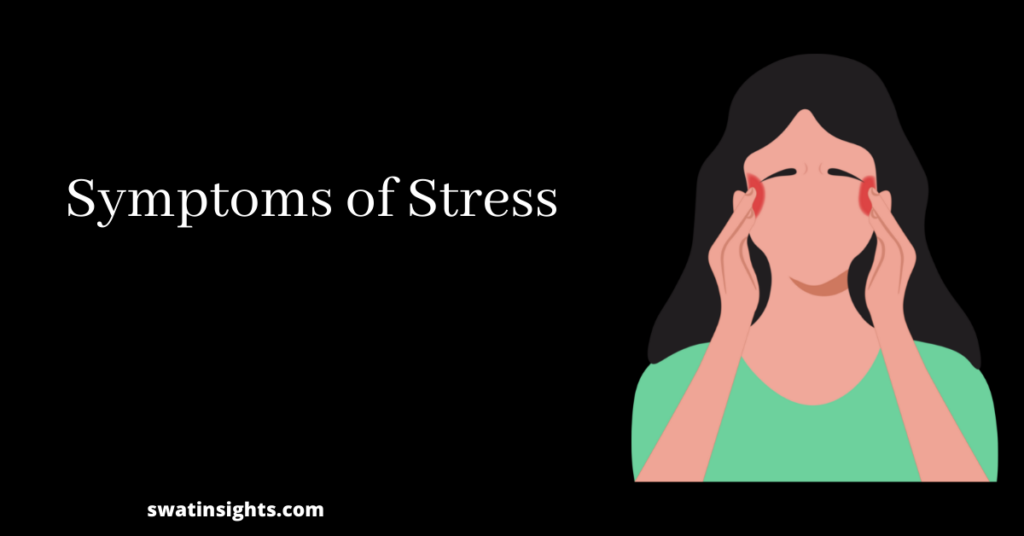Everyone in this world experience stress in their life lifetime. Stress plays a very crucial role in this journey of life. It enables us to tackle the challenges we face daily. Whether it is beneficial or not depends on the person and the situation as well. To deal with it, everything we need to know about stress.
Stress:
Stressors are situations or challenges that create stress. In response to this, our brain releases stress-fighting hormones. It is a self-protecting mechanism that appears during a stressful or emergency. Generally, we call it a fight or flight response.
These hormones keep our brain in the alert mode for even a short time.
For instance – our pulse rate rises, our muscles tense, and we become more motivated.
Stress might be positive or negative. If stress occurs because of workload, it helps us to grow when the work completes. However, the inability to complete the task makes it negative.
Types of Stress:
Acute Stress:
It is short-term stress. As soon as the cause vanishes, this type of stress will also disappear.
Namely, stress occurs during
- an examination
- the deadline of work is approaching
- getting late for work
- amid in-game
In other words, acute stress always comes with a solution.
Chronic Stress:
It remains for a long time. People generally, not accept the situation what they are going through. They are unfit to solve their problems.
For instance,
- fear of failure
- chronic illness
- poverty, and so on.
In the worst case, it results in suicide, heart attack, etc.
Symptoms/Signs of Stress:

Every illness comes with warning signs. It is up to us to recognize those signs earlier. We have to look after our health.
Common symptoms are faster breathing, increased heart rate, excessive sweating, etc. So, our body needs extra energy to cope during times of pressure.
Physical symptoms of stress:
- Headache or migraines
- Body pain
- Digestion problem
- Sleep Disorder
- Difficulty in breathing
- Fatigue
- Low energy
- Skin problem
- jaw pain
- frequent cold.
Psychological symptoms:
- often forget things
- unable to concentrate
- restlessness
- getting angry
- become sad
- irritation
- feeling overwhelmed
- feel lonely or isolated
- crying frequently
- poor judgment
- negative talk.
Behavior symptoms:
- Mood swings
- overreact
- eating disorder
- intake of alcohol/smoking
- procrastinate things.
Causes of Stress:
The different person reacts differently in different situations. The way a person approaches a problem depends on them.
Since stress is not measurable, it can only feel by the person who is going through it.
Its causes might be external or internal/self-generated.
External causes are –
- facing new responsibility
- life-changing situation occurs
- moving from one place to another
- job loss/unemployment
- workload of office
- school assignments
- family/relationship problem
- childcare
- break-up or divorce
- while driving.
Internal causes are –
- being overly concerned about something,
- being a pessimist
- burden of expectation
- cannot accept change easily.
Effect of Stress:
As we all know, our life is unpredictable. As a result, of which stress has become a part of our life. If there exists cause, the effect also exists.
Cause
Overeating
Breathing issue
Increased heartbeat
Sad, lonely, depression
Effect
Obesity
Respiratory disease
Heart disease
Mental health problem
Who is in threat?
People who face:
Social and financial problems,
chronic health problems,
and low self-esteem.
Prevention from Stress:
Self-Caring:
Self-caring can beat anything in the world. So, set small and daily goals to achieve what you want.
Practice Gratitude:
The person can practice gratitude. It helps them to appreciate the things they have in their life.
Yoga and meditation:
Yoga and meditation help to improve the inner health of the individual. As everyone knows healthy mind resides in a healthy body. In other words, tension does not stay longer in a sound mind.
Be optimistic:
Be optimistic because attitude matters in every aspect of life, how one solves their problem. Therefore, problem-solving ability eliminates it.
Be aware of your emotions:
Never let your emotions dominate you and your decisions. If negative emotions are correctly managed, in conclusion, it reduces stress.
Talk with family and friends:
It is them who cares for you and loves you without being judgemental. Thus, talking with family and friends not only lessens stress but is the key to a healthy relationship too.
Know how to say “NO”:
Saying NO does not mean that you are disrespectful to anyone. It simply states that you should do things that make you happy. Therefore, happiness removes tension.
Eliminate unhealthy habits like alcohol/smoking:
Drinking alcohol and smoking not only affects our physical health but mental health too. As a result, to avoid stress, you must also avoid these unhealthy habits.
Eating healthy and nutritious food:
Healthy food is the main ingredient of the body. So, a healthy body can fight any strain.
Develop a good hobby:
There is a dual profit of practice hobby. It keeps us busy and makes us happy, which helps us to eliminate it up to an extent.
To know what is good or bad:
Generally, knowing these difference help us in our decision. The better decision brings less worry.
Good sleep is necessary:
Good sleep is the answer to any problem. Less sleep invites more confusion. As a result, it leads to tension.
Conclusion:
Don’t hesitate to ask for a counselor. It is not a mental disease. We need to ask for help as it is not a thing of embarrassment. At last, it is up to us to turn the negative aspect of stress into a positive one.
Thank you.

6 thoughts on “Stress – Everything you need to know”